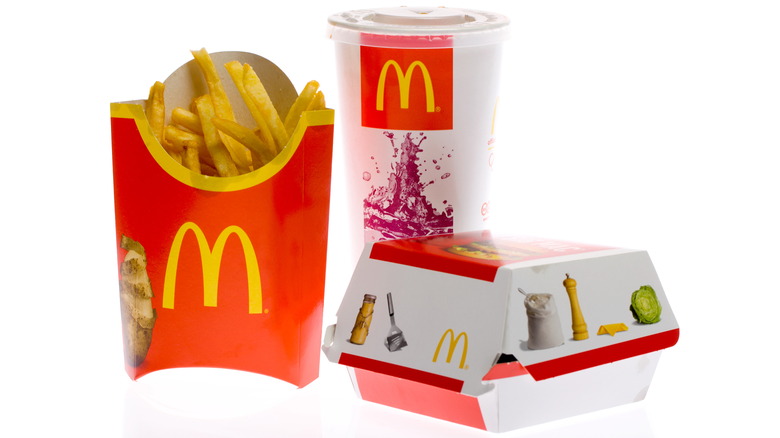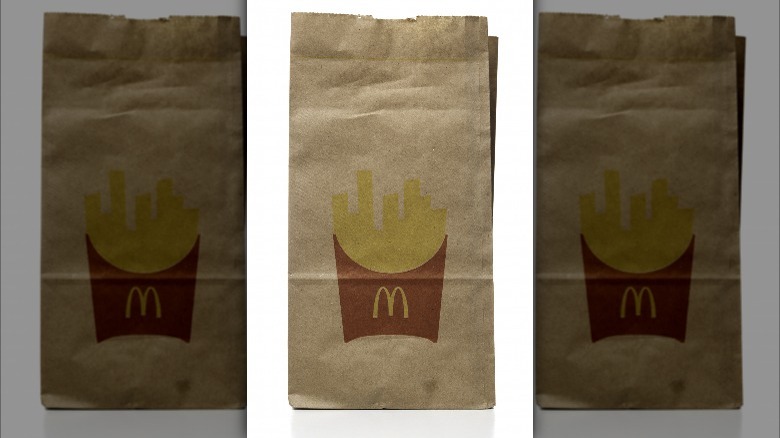The McDonald's Israel-Hamas War Boycott, Explained
Companies regularly insert themselves into the politics of the moment. However, for a company like McDonald's, whose stores are 95% franchise-run, it's often a specific person or store making a statement and not the actual McDonald's Corporation. Not everyone realizes this, though, which is why there are now calls for a McDonald's boycott in some parts of the Middle East.
When an Israeli McDonald's franchise belonging to Alonyal Limited announced earlier in October that it would give local soldiers and hospitals free meals, McDonald's franchises in Egypt, Jordan, Lebanon, Turkey, and other Middle Eastern locations publicly disavowed this move. Despite that, many in the region took to social media, demanding a McDonald's boycott.
The calls got so intense that an Egyptian talk show host, Amr Adib, reminded viewers that Egypt's franchise is owned by Egyptian billionaire Yaseen Mansour's company — Manfoods — which ensures employment for 40,000 Egyptians, and it has little to do with the Israeli franchise. In an attempt to further quell the vitriol, Manfoods is now donating 20 million Egyptian pounds for humanitarian aid in Gaza.
Middle Eastern McDonald's have been vandalized in the past
McDonald's franchise owners of restaurants in Bahrain, Egypt, Jordan, Kuwait, Oman, Saudi Arabia, The United Arab Emirates, and Turkey have altogether promised over $3 million in aid to Gaza, making it clear the politics of the Israeli franchise are not universal. The Al Maousherji Catering Company — in charge of the Kuwaiti McDonald's — issued its own message on Instagram, reiterating that "no unilateral decision made by any individual McDonald's franchisee can be seen as unified global action," and that "what the McDonald's operator did in Israel was an example of such individual action."
With McDonald's locations having already been vandalized in Egypt, Lebanon, and Turkey, more franchises throughout the Middle East have been speaking out or making donations in an attempt to differentiate themselves and divert negative attention. To this point, McDonald's stores have historically been an easy target for defacement and destruction, as seen during the 2011 Arab Spring protests in Cairo, Egypt, during which protestors transformed local McDonald's into shelters and treatment centers.
For its part, the McDonald's Corporation has not directly commented on the situation. A spokesperson told ABC News that the company has donated $1 million, half to The World Food Program and the other half to Red Cross. Meanwhile, McDonald's officially stated priority is making sure its employees are safe.

